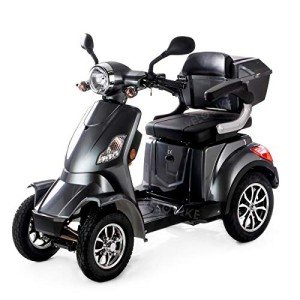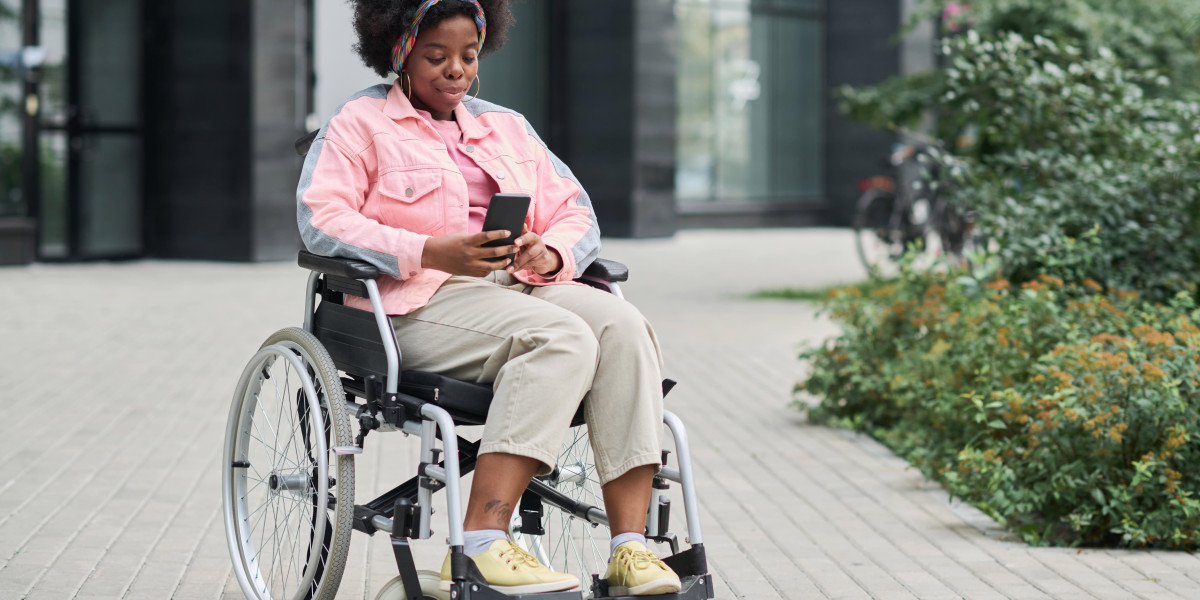Mobility Scooters in the UK: A Comprehensive Guide
In the United Kingdom, mobility scooters are becoming an increasingly popular methods of transport for individuals with mobility concerns, supplying them with the freedom to browse their neighborhoods independently. These motorized cars are designed to assist those who have difficulty strolling or utilizing a manual wheelchair, providing a practical and comfy service for day-to-day travel. This post looks into the world of mobility scooters in the UK, exploring their benefits, legal requirements, and how to pick the best one.
Introduction to Mobility Scooters
A mobility scooter is a battery-powered automobile that typically has 3 or 4 wheels, a seat for the chauffeur, and handlebars for guiding. They are created to be simple to use and keep, making them perfect for older grownups and individuals with specials needs who desire to keep their self-reliance. Mobility scooters come in various sizes and designs, each catering to different needs and preferences.
Benefits of Mobility Scooters
- Increased Independence: Mobility scooters enable users to travel longer ranges without the physical strain associated with walking or utilizing a manual wheelchair. This independence can substantially enhance their quality of life.
- Cost-Effective: Compared to other motorized cars, mobility scooters are fairly budget-friendly. They also require very little upkeep, which can conserve users a great deal of cash in the long run.
- Alleviate of Use: Most cheap mobility scooters near me (darcihelom.top) scooters are designed to be user-friendly, with intuitive controls and comfortable seating. They are frequently lightweight and can be quickly disassembled for transportation.
- Enhanced Social Interaction: By making it possible for users to venture out more regularly, mobility scooters can help in reducing feelings of seclusion and solitude, promoting social connections and community participation.
- Boosted Safety: Mobility scooters are equipped with features such as headlights, brake lights, and horns, making them more secure for use on roadways and in public areas.
Kinds Of Mobility Scooters
When selecting a mobility scooter, it's essential to consider the type that best suits your requirements. Here are the main types available in the UK:
Class 2 Mobility Scooters:
- Speed: Limited to 4 miles per hour (6.4 km/h)
- Usage: Suitable for pavements and pedestrian locations
- Features: Compact and light-weight, foldable for simple transportation
Class 3 Mobility Scooters:

- Speed: Can reach up to 8 miles per hour (12.9 km/h)
- Usage: Suitable for both pavements and roadways, supplied they are signed up and insured
- Features: Sturdier develop, frequently with more innovative functions like suspension and bigger batteries
Strong Mobility Scooters:
- Capacity: Designed to support users weighing up to 400 pounds (181 kg)
- Usage: Ideal for those who need a robust and resilient scooter
- Features: Reinforced frame, broader seat, and enhanced stability
Off-Road Mobility Scooters:
- Terrain: Built to handle rough and irregular surfaces
- Use: Suitable for users who enjoy outside activities like hiking or fishing
- Functions: All-terrain tires, high ground clearance, and powerful motors
Legal Requirements for Mobility Scooters in the UK
Using a mobility scooter in the UK comes with certain legal duties. Here are the bottom lines to consider:
- Registration and Insurance:
- Class 2 Scooters: No registration or insurance needed
- Class 3 Scooters: Must be signed up with the DVLA, insured, and display a valid MOT certificate if used on roadways
- Driver Requirements:
- Age: Users must be at least 14 years old
- Health: No particular health conditions are needed, but users should have the ability to control the scooter securely
- Speed Limits:
- Class 2 Scooters: 4 miles per hour (6.4 km/h) on pavements
- Class 3 Scooters: 8 mph (12.9 km/h) on roadways, 4 miles per hour on pavements
- Security Equipment:
- Lights: All scooters utilized on roadways must have front and rear lights, indications, and a horn
- Reflectors: Required for usage on roadways, especially during low visibility conditions
- Tax and Parking:
- Tax: Class 3 scooters are exempt from lorry tax
- Parking: Users can park in designated disabled parking areas with a legitimate Blue Badge
How to Choose the Right Mobility Scooter
Selecting the ideal mobility scooter involves considering several aspects:
Mobility Needs:
- Range: How far do you need to take a trip?
- Surface: Will you be using the scooter on pavements, roads, or off-road?
- Weight Capacity: What is the maximum weight the scooter requires to support?
Budget plan:
- Initial Cost: Mobility scooters can range from a couple of hundred to several thousand pounds
- Continuous Costs: Consider the expense of batteries, maintenance, and insurance
Features:
- Comfort: Look for a scooter with a comfortable seat and adjustable controls
- Storage: Some scooters offer additional storage for shopping bags or personal items
- Portability: If you require to transport the scooter, pick a design that is lightweight and foldable
Credibility and Support:
- Brand: Research reliable brand names known for their quality and dependability
- Warranty: Check the warranty duration and what it covers
- Customer Support: Ensure the producer or retailer provides great client assistance and service
Frequently Asked Questions About Mobility Scooters in the UK
Do I need a license to drive a mobility scooter?
- No, you do not require a driving license to run a mobility scooter in the UK. Nevertheless, Class 3 scooters should be signed up with the DVLA and guaranteed if utilized on roadways.
Can I utilize a mobility scooter on the pavement?
- Yes, both Class 2 and Class 3 scooters are permitted on pavements, but Class 3 scooters are restricted to 4 mph.
Are there any restrictions on where I can utilize a mobility scooter?
- Class 2 scooters are restricted to pavements and pedestrian locations. Class 3 scooters can be utilized on roads, however they need to satisfy certain legal requirements.
How do I keep my mobility scooter?
- Routine upkeep includes inspecting battery levels, tire pressure, and brake functionality. It's also crucial to clean up the scooter frequently and store it in a dry location.
Can I get a mobility scooter through the NHS?
- The NHS supplies mobility scooters through the Disabled Living Allowance (DLA) or Personal Independence Payment (PIP). You can also purchase or lease a scooter from a personal retailer.
Is a mobility scooter tax-deductible?
- Sometimes, the expense of a mobility scooter can be declared as a medical expense. Speak with a monetary advisor for specific assistance.
Tips for Using a Mobility Scooter Safely
- Wear Appropriate Clothing:
- Wear comfortable and weather-appropriate clothing. Think about wearing a high-visibility coat when utilizing the scooter on roadways.
- Maintain the Scooter:
- Regularly inspect the battery, tires, and brakes to ensure the scooter is in great working condition.
- Follow Traffic Rules:
- Obey traffic indications and signals, and use designated pedestrian and cycle paths when possible.
- Usage Safety Equipment:
- Always utilize the headlights, brake lights, and horn, particularly throughout low visibility conditions.
- Be Mindful of Others:
- Be polite to pedestrians and other road users. Decrease when approaching crowded locations.
Mobility scooters are a valuable tool for people in the UK who deal with mobility difficulties. They provide a series of advantages, from increased self-reliance to enhanced security, making them a popular option for older adults and people with specials needs. By understanding the various kinds of scooters, legal requirements, and how to pick the ideal one, users can delight in the freedom and benefit these vehicles offer. Whether for day-to-day errands or leisure activities, a mobility scooter can substantially enhance the lifestyle for lots of people.
Additional Resources
- DVLA Website: For info on signing up and insuring a Class 3 mobility scooter
- Age UK: Offers advice and assistance for older adults considering a mobility scooter
- Disability Rights UK: Provides assistance on accessing mobility scooters through monetary assistance programs
By putting in the time to research study and choose the best mobility scooter, users can take pleasure in higher self-reliance and a more active lifestyle.







